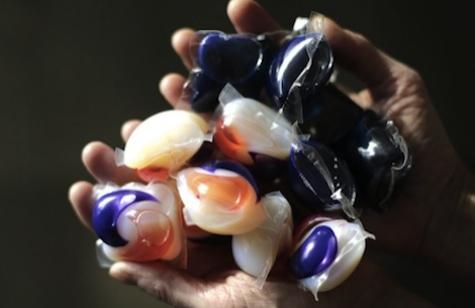Those colourful, all-in-one detergent pods and capsules may be convenient way to get the laundry done, but they pose a risk to young children, a new study shows.
More than 17,000 children under the age of six were exposed to the laundry pods between 2012 and 2013, a study published in the journal Pediatrics found by tracking calls to poison control centres throughout the US.
Most of the incidents involved a child placing the pod in their mouth or eye.Researchers at Nationwide Children's Hospital in Columbus noted that the exposures led to 769 children being hospitalised.
30 went into a coma and 12 suffered seizures after handling the squishy plastic coated discs filled with laundry soap, softener and other detergents. One child died after ingesting a pod, researchers found.
Dr. Gary Smith, the director of the Centre for Injury Research and Policy at Nationwide Children’s Hospital and the study’s lead author, said that he has been in pediatric emergency medicine for more than three decades and had never seen so many children sickened by a laundry product.
"These are very different from traditional laundry detergent," he said of the pods.
"Although we are not entirely sure why they are so toxic, we know that they are very concentrated and the chemicals they contain may not be identical to those found in liquid laundry detergent."
Only about half of the calls into the poison centre about the laundry pod products resulted in a trip to the doctor or emergency room, Smith said. However, nearly two-thirds of the calls involved children between one and two years of age.
"This is a group that has newfound mobility. They are quick, curious and do not recognise danger," Smith noted, adding that even turning your back for a moment is all it takes for a child to scoop up a pod and put it in his or her mouth.
Parents of young children should not keep laundry pods in the home, Smith advised.
"If you do decide to purchase them, they should put them away immediately after use and keep them in a high, locked cabinet where a young child can't easily reach them," he recommended
Last year, the Australian Competition and Consumer Commission warned of the dangers and said the experience in Australia is consistent with an international trend, where most cases have involved a child aged five years or younger.



















__small.png)










